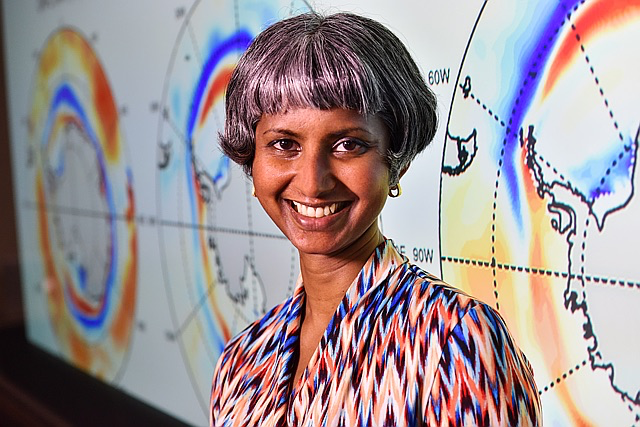Postdoctoral Position in AI/ML for Engineering Optimal Global-Scale Climate Interventions
Published:
We are looking for a postdoctoral researcher with expertise in climate dynamics, interest in climate engineering, and enthusiasm for AI to join our research group! See the description below. Please apply by November 21, 2021 for full consideration for this position. The ideal start date is January 1, 2022, though a slightly later start may be possible.
Postdoctoral Position in AI/ML for Engineering Optimal Global-Scale Climate Interventions at the University of Victoria (Victoria, BC, Canada)
We are seeking an energetic, enthusiastic individual for a postdoctoral research position on using state-of-the-art Artificial Intelligence methods for optimizing global-scale climate interventions. The postdoctoral fellow will work collaboratively with AI researchers at the Palo Alto Research Center (PARC; Palo Alto, CA, USA) to create a climate response function that maps the regional (shortwave) cloud radiative effect to the large-scale coupled (atmosphere and ocean) circulation and regional climate. The fellow will then use this climate response function to generate optimal Marine Cloud Brightening strategies (that, for example, preserve the West Antarctic Ice Sheet or help avert other impending climate tipping points), and test these optimized strategies in E3SM, CESM2-WACCM, or another state-of-the-art Earth System Model.
We expect the successful candidate to have the following background and expertise:
- Experience with running Earth System models (CESM, E3SM, or another state-of-the-art ESM);
- Experience with handling, processing, and analyzing large climate model output datasets (from CMIP5 or CMIP6);
- Experience with scientific computing and data analysis using Python;
- Familiarity with lower-order applied mathematical approaches for distilling the climate system response (such as fluctuation-dissipation, inverse methods, forcing-response theory);
- Experience working as a collegial team member in an interdisciplinary group of scientists; and
- Commitment to meeting project deadlines.
Some prior experience with artificial intelligence and machine learning methods is desirable, but not required.
The postdoctoral fellow will be expected to publish manuscripts in high-quality peer-reviewed journals, and present their findings at national and international scientific conferences. This position is supported by the University of Victoria through a collaborative project with PARC. The positions will be supervised primarily by Prof. Hansi Singh, head of the Climate Dynamics research group in the School of Earth and Ocean Sciences at the University of Victoria , and mentored by Dr. Kalai Ramea, head of the Complex System Analytics research area at Palo Alto Research Center (PARC). PARC, located at the heart of Silicon Valley (near Stanford University), has made ground-breaking contributions to the advancement of computing over the last 40 years: PARC researchers were the original creators of the GUI, Ethernet, laser printing, ubiquitous computing, object-oriented programming, LCD, and many other technologies. Additional expertise in Marine Cloud Brightening interventions will be provided by Dr. Philip Rasch and the MCB group at the University of Washington (Seattle, WA, USA).
The postdoctoral fellow will sit at the School of Earth and Ocean Sciences at the University of Victoria on beautiful Vancouver Island in British Columbia. The position also includes one month of fully-funded expenses for travel to Palo Alto, CA, for learning from, collaborating with, and networking with AI researchers at PARC. As such, the position may provide an excellent springboard for the candidate with an interest in transitioning from academia to climate-relevant areas in industry and the private sector. Funding is available for 18 months (with year two funding subject to a performance review at the end of year one), with a possibility of extension to 36 months, subject to availability of funding.
The position will include a generous salary and a full benefits package (including an allowance for relocation). We especially encourage applications from members of groups experiencing barriers to equity in the physical sciences (women, visible minorities, LGBTQIA individuals, persons with disabilities).
Minimum qualifications for this postdoctoral position include the following:
- A PhD in Atmospheric Sciences, Physical Oceanography, Applied Mathematics, or a related field.
- Experience with scientific computing and high performance computing on parallel architectures.
- Familiarity with coupled atmosphere-ocean dynamics.
Please contact Prof. Hansi Singh (hansingh@uvic.ca) with inquiries.
Interested applicants should submit (1) a cover letter describing your expertise and outlining why you are the ideal candidate for the position, (2) an up-to-date CV, (3) two recent publications demonstrating the required background and expertise for the position, and (4) contact information for three professional references. Please send this material to Prof. Hansi Singh (hansingh@uvic.ca) by Sunday Nov 21, 2021 for full consideration.
Proposed Start Date: January 1, 2022; no later than February 1, 2022.
